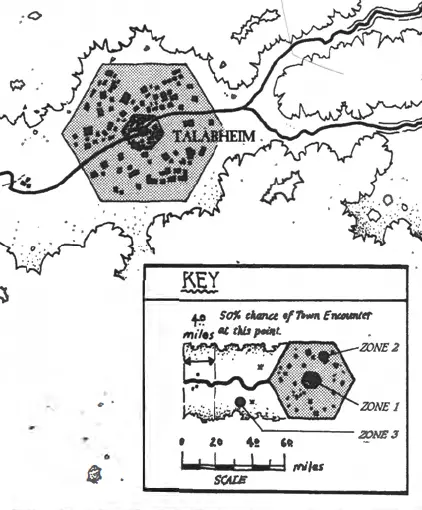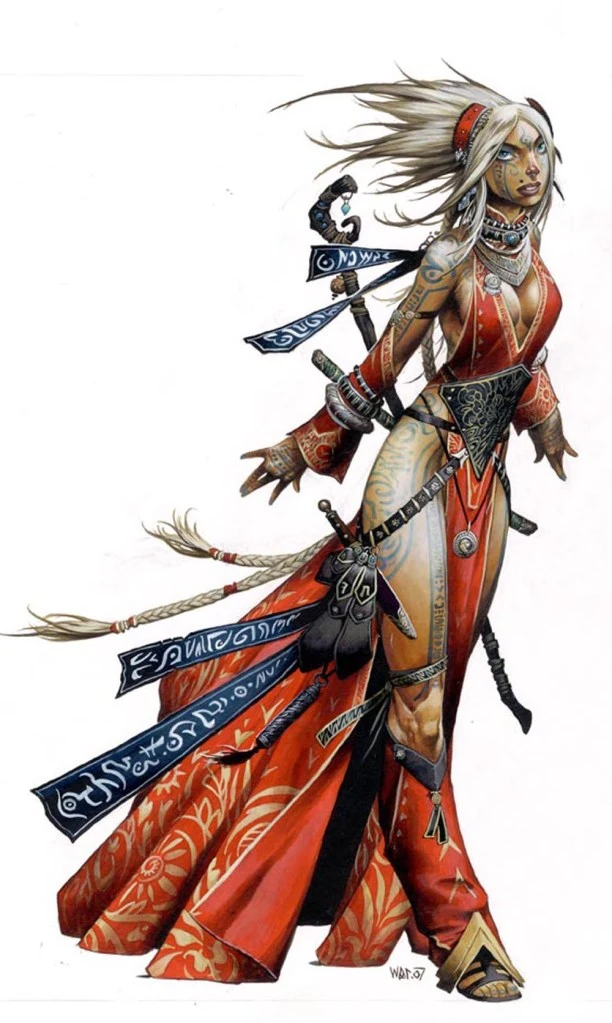Another one of my pet peeves about fantasy world building is the concept of "large cities surrounded by miles and miles of howling wilderness" (looking at you, Forgotten Realms!) While such cities aren't completely unknown in real world history ("oasis towns" in particular, they are and were very rare. Most real world cities are surrounded by a network of smaller settlements, and while you can come up with reasons for why a fantasy city is truly isolated, a setting will be more plausible if that is a rare exception.
So, what is a good way of developing settlement patterns in fantasy worlds?
A concept I found useful for worldbuilding purposes is that of the "Central Place Theory", which describes the notion that settlements of different sizes support each other. (And I first came across it in the WFRP 1E rulebook, of all things!) While this theory is not free criticism, I feel that it yields results that are plausible enough. In order to adapt it for fantasy purposes, I propose the following categories:
- Villages are mostly inhabited by farmers and other food producers, although there might be a few specialist trades such as millers and village blacksmith. They are self-sufficient when it comes to food production, but need to trade for more complex tools. Using Central Europe as an example, it rarely takes more than an hour or two to travel to the next village.
- Towns have markets where the farmers can sell their produce, and thus are rarely more than a day's worth of travel away from any given village. They are administrative centers and can produce most of the tools that the rural population needs for daily survival. However, they are also part of a network of long-distance trade, selling surplus from their own region and buying items that are rare in the local area. Each town is supported by a small network of villages, without whom it would starve.
- Finally, Cities are major trade hubs and centers of craftsmanship. They will support multiple specialized trades and might be famous throughout the country (or beyond) for things they produce. Just like each town is supported by a network of villages, each city is supported by a network of towns.
In other words, when you place a city on a map, think about the network of towns and villages that support it. Depending on the scale of the map, you might not bother to place them all - but you should remember that they are there, instead having the wilderness start close to the city walls.
Which brings me to another point - real world history didn't have much in the way of "monster-infested wildernesses", but these are a staple of fantasy world - and they are a further reason why such dense settlement patterns might develop. After all, a lonely settlement is easy pickings for monsters - but a network of settlements can defend each other. If a single village faces monsters that are too tough for the inhabitants, they can ask for help from the next town or even city, who likely have specialist tools (and people) for that kind of thing.
In worlds where dangerous monsters roam the wilds, you could even make the argument that human(oid) civilization is not viable of the network of settlements is too thin - thus, you have "clusters of civilization" huddling together, while the wilds are full of lost settlement that could not be defended any more...
So, what are your thoughts on this? Have you put any consideration into settlement patterns for your own fantasy settings?


